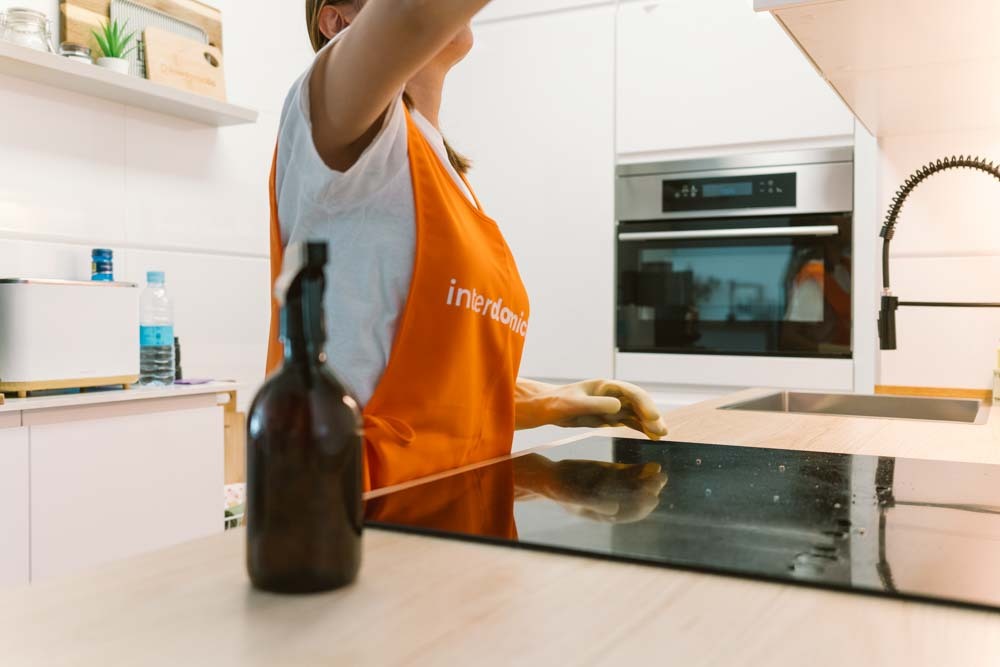Opportunities in personal care and assistance services franchises in Spain: a booming sector

Madrid, May 21, 2025
In a context of demographic aging, increasing longevity, and changing lifestyles, the assistance services and personal care sector is positioned as one of the most promising within the franchise model in Spain. This vertical, which includes care services for the elderly, dependents, children, and personal wellness solutions, responds to essential needs of society, offering stability and opportunities for expansion. This article, developed by the market research team at the Franchise Innovation Summit, analyzes the market size, emerging trends, challenges, opportunities, and characteristics of these franchises, and highlights expanding brands, providing a guide for entrepreneurs and investors interested in this booming sector by 2025.
Market size
The personal care and assistance services sector in Spain is experiencing sustained growth, driven by demographic and social factors. According to the Franchise Report in Spain 2024, the franchise system in Spain has 8,123 franchised companies, 136 new brands, and global revenue that grew 9.6% to €33.2 billion in 2024. Within this ecosystem, the personal care and assistance services segment stands out for its resilience and constant demand.
Specifically, the elderly and dependent care market moves a significant volume. In Spain, 1.4 million dependent people live there, a figure that will triple in the next 30 years, according to Wayalia, a leading brand in the sector. This segment generates an estimated €2 billion in annual revenue from home services and day care centers, with annual growth of 7-10%, according to data from DBK. Furthermore, the personal care sector, which includes nutrition and dietetics, had revenues of €1.98 billion in 2021, with a notable post-pandemic recovery.
The healthcare services franchise sector has more than 150 active brands and approximately 1,500 operating units, generating nearly 15,000 direct jobs, according to estimates by the Spanish Franchise Association (AEF). These figures reflect the strength of a market driven by an aging population—20% of Spaniards are over 65, according to the INE—and the growing preference for personalized and home-based solutions.
Emerging trends
The personal care and assistance services sector is evolving rapidly, aligning with consumer needs and expectations. Key trends for 2025 include:
Digitalization and Technology: The integration of digital platforms for appointment management, telecare, and remote monitoring is key. Brands like Cuidamos Mundi offer digital platforms for efficient administration, while artificial intelligence and big data are used to personalize services.
Focus on Longevity and Comprehensive Well-being: Consumers are looking for services that combine physical, mental, and emotional health. Franchises such as Naturhouse focus on personalized nutrition programs, while others incorporate coaching and psychology.
Sustainability and ethics: Customers value brands with responsible practices, such as the use of eco-friendly products in personal care services (for example, herbalists like CataNatura) or models that promote local employment.
Home and Community Services: The preference for receiving care at home is driving models such as Wayalia or Interdomicilio, which offer flexibility and convenience.
Service diversification: Franchises are expanding their offerings to include childcare, hospital care, training, and home maintenance, as is the case with Interdomicilio.
Sector challenges
Despite its potential, the sector faces challenges that franchisees must address strategically:
Reliance on human talent: The quality of service depends on qualified professionals, which poses challenges in recruiting, training, and retaining staff. High caregiver turnover is a significant risk.
Strict Regulation: The sector is subject to rigorous regulations, especially in dependent care services, which requires compliance with licenses and quality standards.
Competition with public services: Public social services and local associations compete with franchises, especially in rural areas.
Customer loyalty: Trust is crucial in this sector. Franchises must invest in long-term relationships and personalized experiences to retain customers.
Operating costs: Although many franchises don't require physical premises, training, marketing, and technology costs can be high.
Opportunities in the sector
The personal care and assistance services sector offers multiple opportunities for entrepreneurs and investors:
Growing demand: The aging population and longer life expectancy ensure sustained demand. In Spain, the population over 65 will grow to 25% by 2030, according to the INE.
Low initial investment: Many franchises, such as Cuidamos Mundi (initial investment of 17,230 euros), Edades (from 15,000 euros), or SerHogarsystem (from 10,000 euros), are accessible for self-employment.
Flexible models: The ability to operate without a physical location reduces costs and allows for scalability, as in the case of Devuelving, which combines digital services with personal care.
Institutional support: Financing programs, subsidies for sustainable models, and tax exemptions facilitate entry into the sector, according to the Franchise Spain 2025 Report.
International expansion: Brands like Naturhouse, with a presence in 32 countries, demonstrate the potential for global growth.
Characteristics of personal care and assistance services franchises
These franchises are distinguished by the following characteristics:
Low investment and scalability: Many don't require physical premises, with initial investments from 10,000-20,000 euros, ideal for self-employment or microfranchises.
Simple operation: The models are designed for entrepreneurs without prior experience, with ongoing training and support from the central office, just like in Interdomicilio.
High recurring demand: Services, such as elder care or nutrition, are constant needs, ensuring stable income.
Proximity focus: Franchises operate in local settings, near hospitals, nursing homes, or residential areas, maximizing accessibility.
Strong human component: Empathy, quality of service, and trust are essential, which requires careful staff selection.
Franchising brands expanding in Spain
Below are some of the most prominent brands in the personal care and assistance services sector that are expanding their networks in Spain, with examples of their business models and characteristics:
Description: Leader in home care for seniors, founded in 2016, with more than 15 locations. Offers flexible home care, remote care, and companionship services.
Investment: From 30,000 euros (entry fee: 15,000 euros).
Features: Self-employment model with ongoing training and digital support. Focuses on the quality of life of seniors.
Expansion: Plans to open 10 new units by 2025, especially in Catalonia and Madrid.
Description: Leading brand with over 10 years of experience and 50 active agencies. It offers four lines of business: domestic service, senior care, childcare, and home maintenance.
Investment: From 20,000 euros (entry fee: 12,000 euros).
Features: Low-investment model with high profitability (30% annual growth). Ideal for entrepreneurs seeking diversification.
Expansion: Committed to consolidating its presence in Andalusia and Levante, with 5-7 openings planned for 2025.
Description: Specializing in home services for seniors, with accreditation from the Regional Government of Castile and León.
Investment: 17,230 euros (entry fee: 11,800 euros).
Features: Low-cost franchise with 5% royalties and a digital platform for efficient management. Ideal for urban areas near hospitals.
Expansion: Seeking growth in northern and central Spain, with a goal of 8 new franchises by 2025.
Description: Leader in nutrition and dietetics, with more than 2,300 establishments in 32 countries. Offers personalized weight loss and wellness plans.
Investment: From 25,000 euros (entry fee: 10,000 euros).
Features: Proven model with high customer loyalty and marketing support. Focused on healthcare professionals.
Expansion: Plans to open 20 new centers in Spain by 2025, focusing on medium-sized cities.
Description: Senior care franchise with more than 50 offices in Spain, specializing in home care and remote assistance.
Investment: From 15,000 euros (entry fee: 9,000 euros).
Features: Accessible model with simple operations and comprehensive training. Ideal for local entrepreneurs.
Expansion: Target of 10 new openings by 2025, especially in southern and northwestern Spain.
Description: Franchise specializing in domestic and care services for seniors, dependents, and families. It offers comprehensive solutions for the home, including cleaning, personal care, and other complementary services.
Investment: The initial investment starts at €10,000, including the entry fee. Commercial space is not essential, although an office of approximately 25 m² is recommended.
Characteristics: Flexible model, ideal for entrepreneurs seeking self-employment. Provides initial training and ongoing support from headquarters. The operation is adapted to towns with a population of 15,000 or more.
Expansion: It currently has more than 35 branches in Spain and an international presence in countries such as Portugal and Mexico. It continues to expand with new openings planned in urban and residential areas.
Description: The first franchise network of daycare centers in Spain, focused on the physical and mental health of seniors.
Investment: From 80,000 euros (entry fee: 20,000 euros).
Features: Premium model with personalized services and agreements with public entities. Requires 100-200 m² of space.
Expansion: Plans to expand with five new centers by 2025, focusing on large cities.
Description: Home care services franchise, founded in 2020, focusing on seniors, dependents, and people with disabilities.
Investment: From 18,000 euros (entry fee: 10,000 euros).
Features: Low-investment model with an emphasis on autonomy and quality of life. Local marketing support.
Expansion: Looking to grow in the Mediterranean and inland, with 6-8 openings planned for 2025.
Strategies for success
To take advantage of the opportunities in this sector, franchisees must:
Prioritize Staff Training: Invest in ongoing training programs to ensure high-quality service, as Wayalia and Vitalia do.
Embrace Technology: Implement digital platforms for management and monitoring, following the example of Cuidamos Mundi.
Promote Proximity: Establish yourself in strategic areas near hospitals, nursing homes, or residential areas to maximize customer acquisition.
Build Trust: Develop long-term relationships with customers through empathetic and personalized service.
Take advantage of public aid: Explore subsidies and financing programs, especially for sustainable models, such as those promoted by the EU.
Conclusion
The personal care and assistance services franchise sector in Spain is experiencing a period of expansion and transformation, driven by the aging population, digitalization, and the demand for customized solutions. With growing revenue, low-investment models, and a booming market, this vertical offers opportunities for both entrepreneurs seeking self-employment and investors with a strategic vision. Brands such as Wayalia, Interdomicilio, Cuidamos Mundi, Naturhouse, Edades, Vitalia, and TSYS are leading the expansion, demonstrating the potential of a sector that combines profitability with social impact. However, success will depend on the ability to overcome challenges such as talent management, regulation, and competition, while focusing on innovation and service quality. By 2025, this sector will continue to be a pillar of the franchise system, offering a "golden opportunity" for those who know how to adapt to the needs of a changing society.






